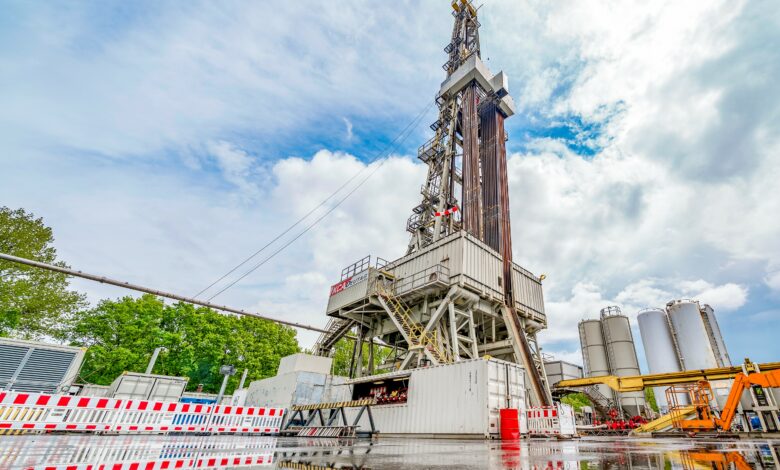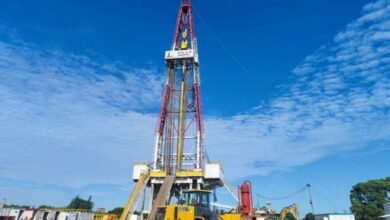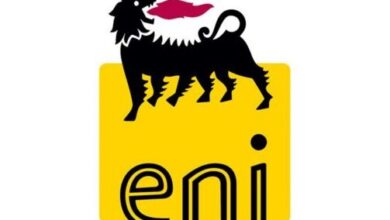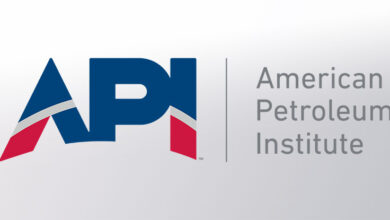Environment, Social & Governance

Electrical motors to cut drilling emissions in Germany
Neptune Energy recently awarded KCA Deutag with a contract to drill the Z17 well in the Adorf Carboniferous gas field, northwest Germany. Operated with power from the grid, KCA Deutag’s rig will use electrical motors in place of diesel-driven generators, removing an estimated 1,000 tonnes of CO2 emissions from the drilling operation.
Neptune has been developing the Adorf field since 2019. The Adorf Z15 and Adorf Z16 wells were also drilled by KCA Deutag and are now in production.
“The use of electrical motors underlines Neptune’s commitment to continue to reduce emissions from our operations,” said Andreas Scheck, Neptune Energy’s Managing Director in Germany. The operator says that by 2030, it aims to store more carbon than is emitted from its operations and from the use of its sold products.
Work on the Z17 well is due to commence in June.
Neptune Energy holds a 100% stake in the Adorf Carboniferous gas field. The current daily production is around 4,500 bbl/day of oil equivalent.
SEC proposes requirements for climate-related risks, emissions disclosures
The US Securities and Exchange Commission has proposed rule changes that would require registrants to include certain climate-related disclosures in their registration statements and periodic reports, including information about climate-related risks that are reasonably likely to have a material impact on their business, results of operations, or financial condition, and certain climate-related financial statement metrics in a note to their audited financial statements. The required information about climate-related risks also would include disclosure of a registrant’s greenhouse gas emissions.
“Today’s proposal would help issuers more efficiently and effectively disclose these risks and meet investor demand, as many issuers already seek to do. Companies and investors alike would benefit from the clear rules of the road proposed in this release,” SEC Chair Gary Gensler said.
Under the proposed rule changes, accelerated filers and large accelerated filers would be required to include an attestation report from an independent attestation service provider covering Scopes 1 and 2 emissions disclosures, with a phase-in over time, to promote the reliability of GHG emissions disclosures for investors.
The proposed rules would include a phase-in period for all registrants, with the compliance date dependent on the registrant’s filer status, and an additional phase-in period for Scope 3 emissions disclosure.
Click here for additional information on the proposed changes.
New framework aims to help assess reliability of crude oil’s GHG intensity
S&P Global has issued a study providing guidance and methodology to help the industry improve comparability, consistency and confidence in assessing the life-cycle greenhouse gas (GHG) intensity of crude oil. The study addresses challenges that currently limit utility of life-cycle GHG emissions estimates of crude oil. It also proposes a “Data Quality Metric,” a framework to improve the transparency around the reliability of estimates. It was developed in collaboration with the US Department of Energy’s National Energy Technology Laboratory.
The study also aims to demonstrate the guidance and methodology by creating a benchmark representing the average intensity of crude oil consumed in North America. The results assess the crude oil pathways that comprise over 90% of the volume processed in the US in 2019.
Click here to download the full report.
Shell commits funds to create Energy Transition Institute
A $10 million gift from Shell has enabled the University of Houston (UH) to establish the Energy Transition Institute, focused on the production and use of reliable, affordable and cleaner energy. Total funding for the institute will likely exceed $52 million.
With Shell as the founding partner, the Energy Transition Institute is focused on three core areas: hydrogen, carbon management and circular plastics. The hydrogen focus will be on the industrial use, storage and transportation of liquid hydrogen, driven by a commercialization effort to accelerate its decarbonization at scale. In addition to this work, UH is already working with a Shell-led consortium to enable large-scale liquid hydrogen storage for international trade applications. Carbon management will focus on policy, research and development to reduce emissions through the capture, utilization and storage of CO2 and methane.
After the institute is launched, it is expected that Shell scientists will work with faculty and students on each of the core areas.

Equinor awarded licenses for CO2 storage on NCS
Equinor has been awarded the operatorships for the development of two CO2 storage projects – Smeaheia in the North Sea and Polaris in the Barents Sea. The two licenses are seen as building blocks for developing the Norwegian Continental Shelf (NCS) into a leading province for CO2 storage in Europe.
CO2 transport and storage infrastructure is crucial for providing CO2 solutions on a commercial basis to industrial customers, such as steel, cement and other heavy industries. This will also help protect existing jobs while creating new jobs in the development of new value chains on the Norwegian shelf.
New BSEE Burner could be game changer for oil spills
On 30 March, the US Bureau of Safety and Environmental Enforcement (BSEE) and the US Naval Research Laboratory (NRL) hosted a demonstration of the Low-Emission Spray Crude Oil Combustor technology, also known as the “BSEE Burner.” The demonstration was held at NRL’s testing facility in Chesapeake Beach, Md.
Developed in partnership with NRL over seven years, the BSEE Burner cleanly burns large volumes of emulsified oil from spills that occur in remote areas where storage facilities may not be available, or where transporting the recovered oil is cost prohibitive. EPA emission tests revealed that the burner performs well with a combustion efficiency of 99.9%.
“This technology has the potential to be a game changer in the performance of oil spill recovery,” said BSEE Director Kevin Sligh.
Talos Energy executes lease for CCS site offshore Texas
Talos Energy announced that Bayou Bend, its venture with Carbonvert, has executed definitive lease documentation with the Texas General Land Office to formalize a carbon capture and sequestration (CCS) site offshore Jefferson County, Texas, near the Beaumont and Port Arthur, Texas industrial corridor. It is expected to be the first major offshore carbon sequestration site in the US. The lease maintains an estimated sequestration capacity of 225 million to 275 million metric tons of CO2.
Talos separately announced that it had established a CCS strategic alliance with Core Laboratories to provide technical evaluation and assurance services for CCS subsurface analysis, including the company’s upcoming 2022 stratigraphic evaluation wells.
BP, Chevron join new Singapore-based group for maritime decarbonization
BP and Chevron each recently announced that they have joined the Global Center for Maritime Decarbonization (GCMD). Singapore-based GCMD was set up last year to help drive decarbonization of the maritime industry. It aims to help the maritime industry meet or exceed the International Maritime Organization’s GHG emission reduction goals for 2030 and 2050.
BP’s partnership adds $7.4 million (S$10 million) in funding for GCMD.
Chevron said its involvement aims to help support GCMD’s efforts to develop potentially scalable lower-carbon technologies – including those that enable the use of ammonia as a maritime fuel – and the commercial means to enable their adoption.
Nabors Industries invests in geothermal tech company
Nabors Industries has invested $8 million into GA Drilling, a geothermal technology company with headquarters in Bratislava, Slovakia. The investment expands Nabors’ commitment to deep-drilling technologies that can tap super-hot, ultra-deep rock reservoirs.
GA Drilling’s PLASMABIT drilling tool will be integrated into Nabors’ automated and lower-emission drilling operations, accelerating field commercialization and eliminating traditional economic barriers of ultra-deep projects to expand global access to geothermal energy.




